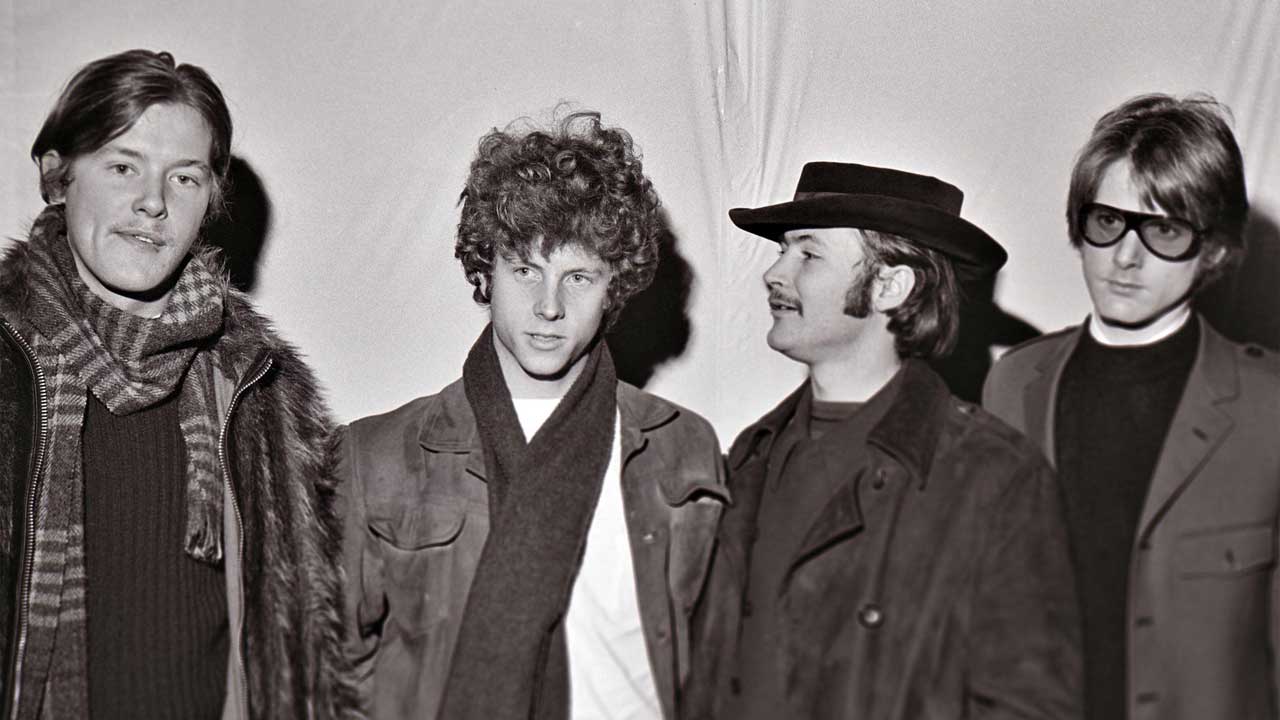You can trust Louder
At the end of each album cycle, Biffy Clyro often feel the need for a purge.
In 2009, they did it with Missing Pieces – the B-sides album that is the companion piece to their 2007 record Puzzles. In 2010, they did it again as Lonely Revolutions came out to compliment the 2009 record Only Revolutions. Similarities completes the process for 2013’s Opposites, standing as a 16-track body of work that is both not quite up to usual Biffy standards, but still better than any number of ‘proper’ releases from most rock bands. Even when they’re not trying, Biffy outstrip most of their contemporaries.
The reason for the purge is to avoid temptation. Singer Simon Neil says he likes to clear the decks so that there are no fragments of former songs lurking for him to lean on when it comes time to make new music. That way, he argues, the band can progress and never have their past to weigh them down. But there may be other reasons in this case: Opposites was made at a time of great stress and anxiety for Biffy Clyro. Tiredness had set in following the mammoth touring that accompanied Only Revolutions while drummer Ben Johnston’s drinking problems had strained the band’s relationship. The subsequent record is shot through with angst writ large in stadium rock songs. Putting the period behind them by ridding themselves of all the songs it inspired must be another reason for the purge.
The fear, though, is whether the songs on Similarities are good enough for release as an album. They were not deemed sufficiently strong to fit onto Opposites – a double album that spread itself a little thin at times. Well, it depends on the yardstick by which you measure the songs. By Biffy standards, the material on Similarities is not up with their best work. By a lot of other band’s standards, however, these would be gold.
The Rain opens the record and can count itself unlucky not to have made Opposites: mournful, wistful and pensive, Neil’s voice sighs over its brooding melancholy. Thundermonster is a giant, arena-sized belter. Break A Butterfly On A Wheel has world-weariness but also a delicate, light touch. These are the band at their best.
Elsewhere, there is more of the experimentalism of earlier Biffy – their trademark jerky, staccato rhythms crop up in Fingerhut, City Of Dreadful Night, Feverish, the electro-tinged A Tragic World Record and more. Sorry And Thanks opens with something similar to an African riff, before being shot through with flailing riffs. But while some of it is fantastic – a reminder of the quirkiness that used to be the band’s guiding light – some of it deserves its place on a B-side. There is a lack of care, a lack of magic as the songs fail to take flight.
But what almost all of these songs have is something that Biffy Clyro now deliver as a matter of course. Almost every one of these songs unfolds, at some point, with a chorus you could build a cathedral on. Giant, fist in the air melodies, underpinned by great guitar eruptions. Monolithic and triumphant. These are what have made Biffy as big as they are today – to the regret, perhaps, of the fans who preferred the earlier quirks. But they’re also why this album can stand on its own two feet. And that’s not bad for a record made up of songs not considered good enough for a 20-track double album.
The latest news, features and interviews direct to your inbox, from the global home of alternative music.
Tom Bryant is The Guardian's deputy digital editor. The author of The True Lives Of My Chemical Romance: The Definitive Biography, he has written for Kerrang!, Q, MOJO, The Guardian, the Daily Mail, The Mirror, the BBC, Huck magazine, the londonpaper and Debrett's - during the course of which he has been attacked by the Red Hot Chili Peppers' bass player and accused of starting a riot with The Prodigy. Though not when writing for Debrett's.


